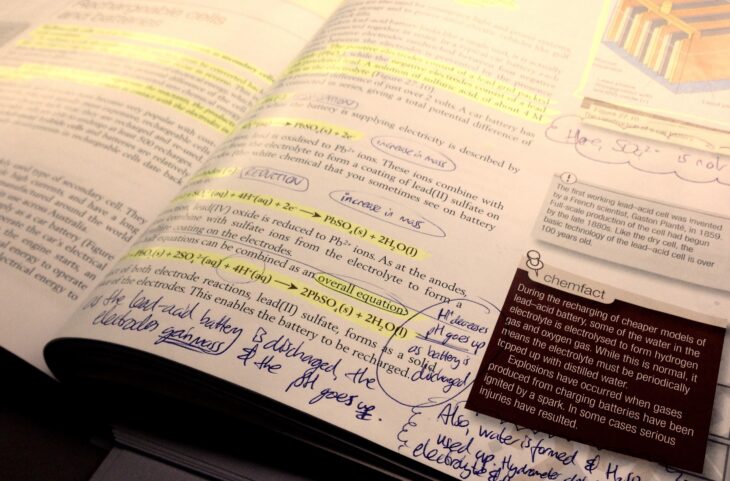There is no longer a school where children, sitting straight and with their hands folded, politely listen to a strict teacher. Modern schoolchildren want communication, conversations with a teacher, whom they prefer to perceive more as an adviser, rather than as a strict critic, new sophisticated services. How do you make sure that your children don’t get bored at each of your lessons? We have prepared seven basic tips.

Source: happierhuman.com
Contents
Make friends with your students
Modern students are skeptical of a teacher who tries to be superior to them. You should show students all online possibilities: making friends, paper formatting, such as Editius.com and anothers. Allow your children to be on a par with you, but make sure that they follow the rules of behavior. Find common topics with students, become a friend and adviser to them, and ask about their interests and problems. Start the lesson not by checking your homework, but by asking about the latest popular movie or bestseller, The latest high-profile news, or a new song by a well-known band. For at least 10 minutes of the lesson, you can discuss the problems that interest the class. Remember, your main task is not to teach the children a lesson. The main task of every teacher is to educate students as conscious people who can think and respect each other.
Never retell what you can read in a textbook
Most of all, my class did not like chemistry lessons at school, because the teacher unfolded the textbook and read from it. However, sometimes she brought reagents and showed us “chemical wonders”. Then we were surprised at how quickly time flew by. And only these chemistry lessons we often remember. Therefore, always try to find interesting information (facts, stories, adventures) for students about a particular topic. Don’t force them to take notes on a textbook or learn a paragraph by heart. It is better to ask children to write out basic information in a notebook as they see fit.

Source: medium.com
Use a variety of techniques
Interesting teaching methods such as” philosophy for children“,” mixed learning“,” positum approach ” will certainly help you prepare for the lesson as best as possible. Choose the technique that you like best and apply it in the lesson. If you are not yet ready for such drastic changes, then choose from each technique what you think is the most important and experiment, combine. Remember, children are very fond of variety. When they see that the teacher is trying to conduct the lesson outside the box, they will first observe this process, and later offer ideas themselves.
Combine theory with practice as much as possible
Of course, you have a lesson plan and topics. But you will agree that children will not remember everything. Therefore, try to at least additionally provide them with the information on the subject that will be useful in life. For example, few people will remember the rules of the Ukrainian language. Instead, you can create an “as we speak” sign in which to submit correct and incorrect statements for each day. To get students interested in literature, ask them to read books that describe the problems of teenagers, that is, what they are really interested in. In economics, for example, teach them to develop your own budget. Let students know that it is your subject that will bring them the maximum benefit in their daily life.

Source: jameskennedymonash.wordpress.com
Give students interesting homework assignments
So that children don’t get bored, combine exercises from the textbook with non-standard homework assignments. Crosswords, Posters, Presentations, surveys, presentations – all this will be interesting for students to perform. And you can do some homework with them. For example, it will be useful for children to see how the teacher makes a presentation or survey. You can complete these tasks with errors and ask your children to find them or rate your work. Students like to compare their task with the teacher’s task. You may not always check home exercises from the textbook, because, believe me, you can always write them off before the lesson from a friend. It will be much more effective to check your homework assignments. Mostly it is difficult to find answers to them, so children will try to complete them independently. Make students a mandatory list of film lectures in your subject that they should watch during the semester and write a review of each film. Add both documentaries and feature films to this list.
Try to conduct lessons on the street
Mostly children spend half a day in the classroom, sitting at their desks. And when the sun is warm outside, it is very difficult to focus on your studies. Therefore, it will be useful for students to walk outside or around the school, listening to the teacher. Choose in advance a place where it will be quiet and cozy, put the children in a circle on the grass, sit next to them and conduct a lesson in this format. Instead of a blackboard, you can use Whatman paper or notebooks, and instead of chalk–colored markers. This lesson format is very suitable for studying natural subjects. If you live in a big city or have the opportunity to go to a museum with your students, use this opportunity. For example, a history lesson in a museum will be remembered by children for a long time. In any case, they will really enjoy studying in an informal setting, visiting interesting places.

Source: verywellfamily.com
Conduct each lesson as if it were your last time
Students feel good when the teacher tries hard in class, and when he comes only “to leave”. Therefore, give yourself one hundred percent, prepare for each lesson as best as possible, come up with interesting tasks and try to be the teacher that you would like to have yourself. Be sincere with your students, and they will also be sincere with you. Remember that you don’t have the right to be a teacher just at school. Because being a teacher means always being one.
